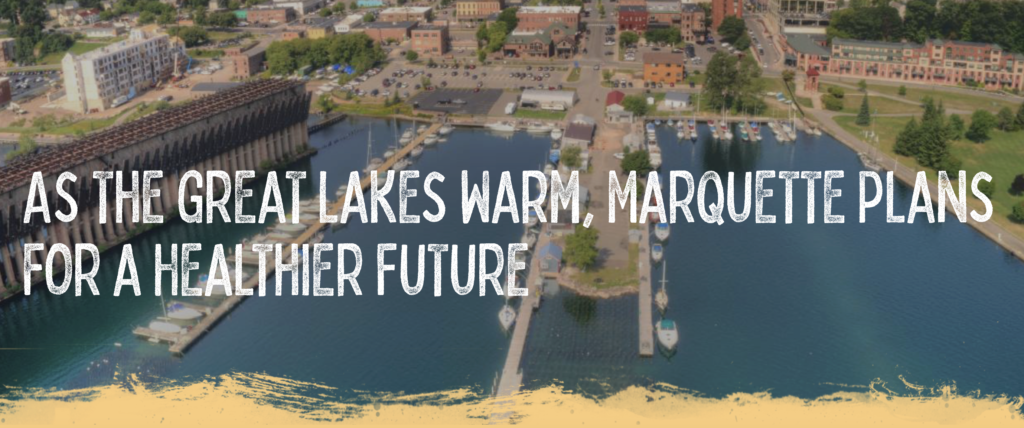Posted to AAAS website September 16, 2019
CLIMATE AND HEALTH
Located on the shores of Lake Superior, Marquette is a thriving city and county facing dramatic environmental changes that will impact the health of local residents.

A warming climate and variable lake levels are contributing to flooding, pollution runoff and infectious diseases that officials say will present increasing challenges to the community. Over the past five years, Marquette officials have worked closely with scientists from federal and state agencies as well as local stakeholders to develop a series of climate and health guidebooks that will allow them to better prepare for the future.
With its stunning natural beauty by the shores of Lake Superior, low cost of living and proximity to good medical facilities and a state university, Marquette, Michigan has made several lists of top U.S. cities in which to retire. Local officials and residents agree. Clean air and water and the towering forests of Michigan’s Upper Peninsula make Marquette a healthy place to live.
But local, state and federal officials say health threats are not far off. Scientists reporthigher temperatures, greater flooding and increased water- and vector-borne illnesses will pose rising threats to residents in Michigan and the Great Lakes area. The Great Lakes and the Midwest could attract more people as southern and western regions of the U.S. are impacted by climate change. That could put even more stress on local resources. “Marquette has a large hospital and a university and has amenities that people are looking for,” says Brad Neumann, a Michigan State extension service expert who is working with the city and county to plan for climate change impacts. “A big part of the conversation is how this place can be more resilient, so we don’t diminish our resources [as more people move here].”
For full article click below